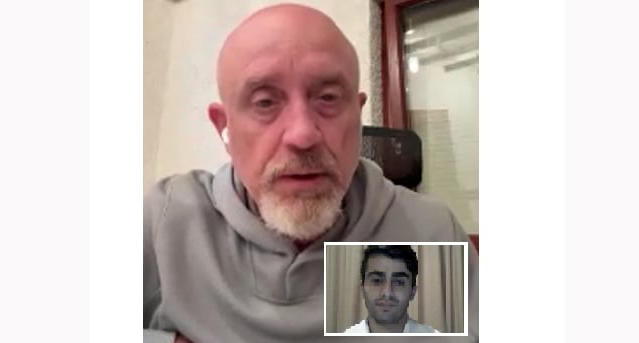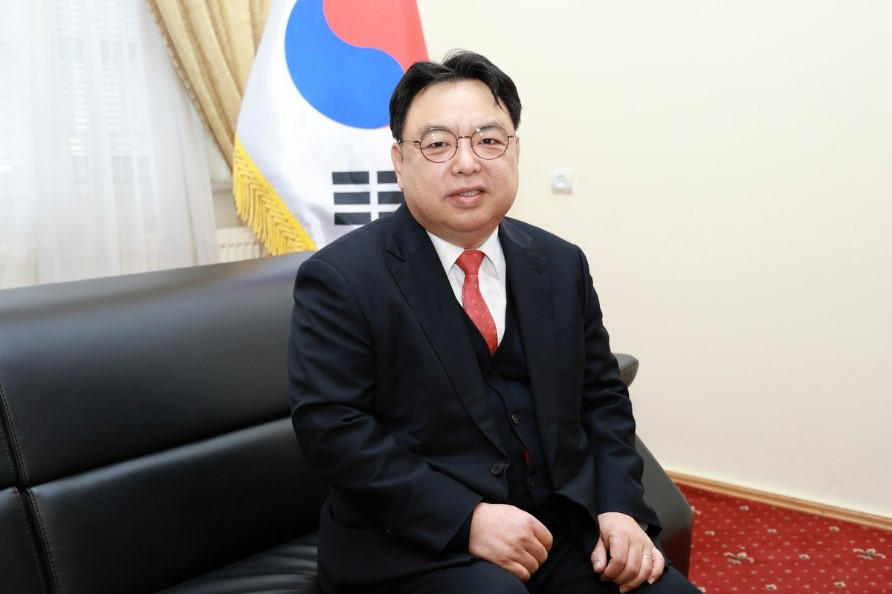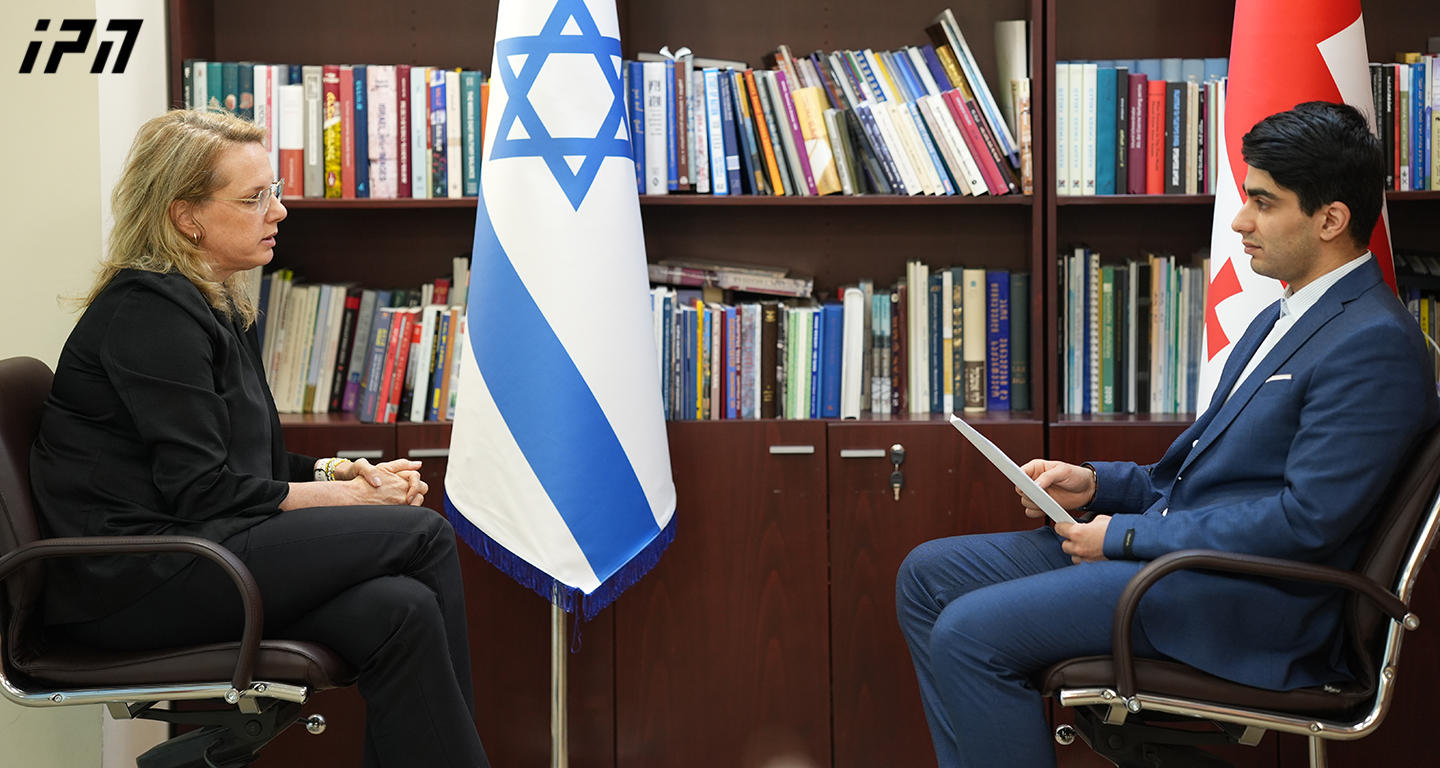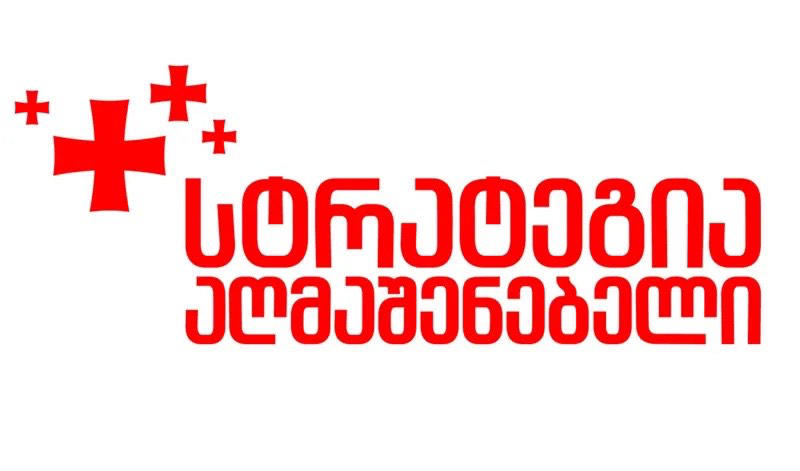
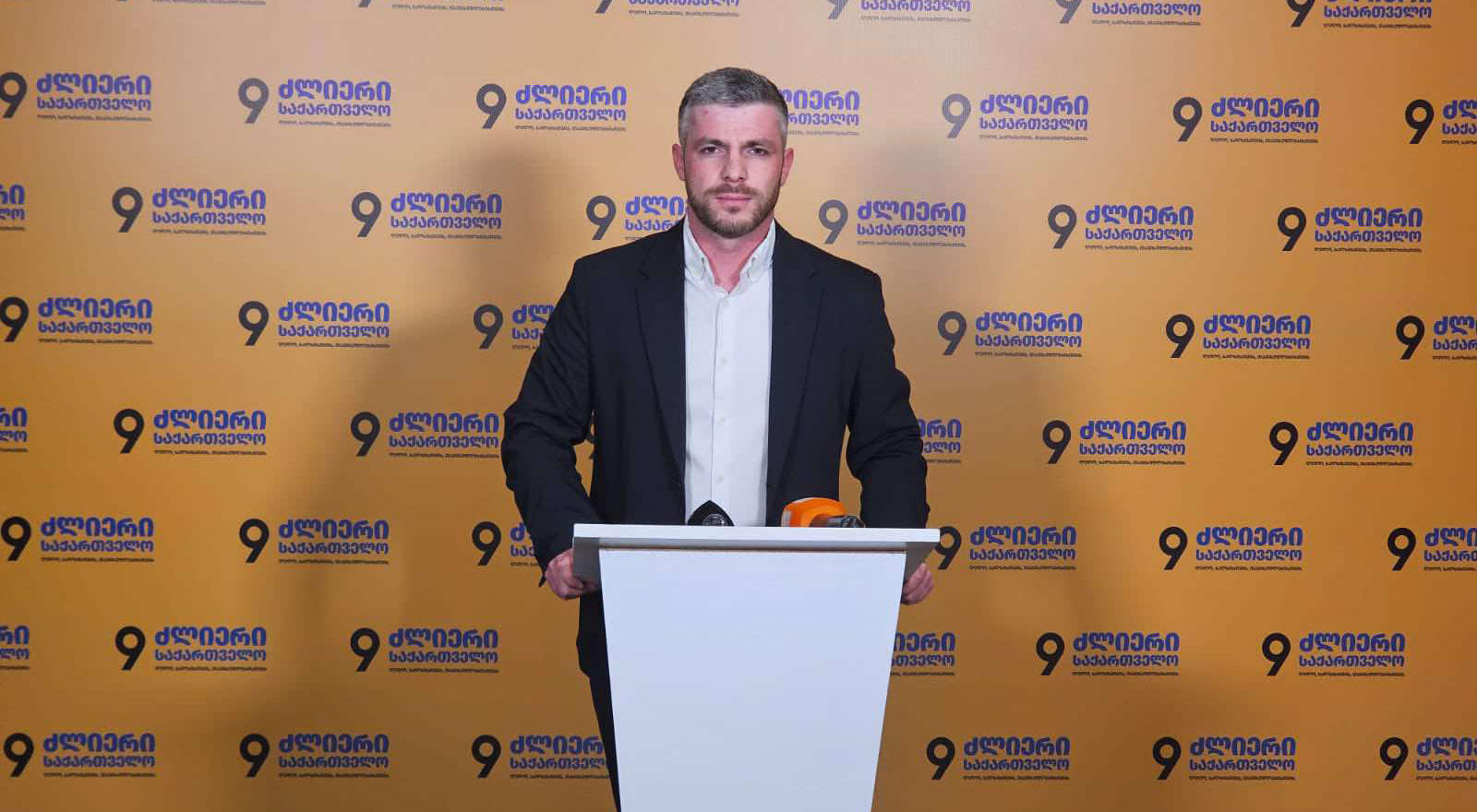
How effective are the economic sanctions imposed by the West on Russia, how Brussels and Vilnius are going to solve the issue regarding Kaliningrad and what does Lithuania advise Georgia on the path of European integration - Ambassador of Lithuania to Georgia, Andrius Kalindra, discussed these and other issues in an exclusive interview with the PalitraNews TV and InterPressNews.
More than 130 days passed since the Russian invasion of Ukraine. During this time, western countries imposed several packages of sanctions on Russia. As we can see strict sanctions affected the Russian economy as well as the economy of the whole world. But at the same time, according to official data, during the 100 days of the war, Russia earned 97.7 billion USD from fossil fuel exports, and the average revenue in 1 day was 977 million USD. Do you think that sanctions against Russia are effective and they make it weaker day by day, or has Russia managed to find alternative ways to finance its war machine?
Thank you so much for this opportunity. The Western economies were very much ready to suffer economically in order for the Ukrainian people and state not to suffer. This is our commitment and our determination to be in solidarity with Ukraine. Except for the sanctions, there is no any other peaceful form in this situation. That's why we chose peaceful ways of imposing the sanctions.
And definitely, to some extent, this is the political will and political determination to hit Russia's economy, to hit its trade. Right now sanctions are in place, and let's see how it will be later at the end of the year. Definitely, there are more and more signals that Russia's economy is also getting damaged.
I would also like just to pay additional attention to the fact that this is not just about Russia, but also Belarus. Belarus is the country that provided its own soil for military aggression against Ukraine. Two days before that aggression, the Defense Minister of Belarus stated that they would not be in a position to be part of the aggression. Unfortunately, there's no trust, no confidence with Belarus too.
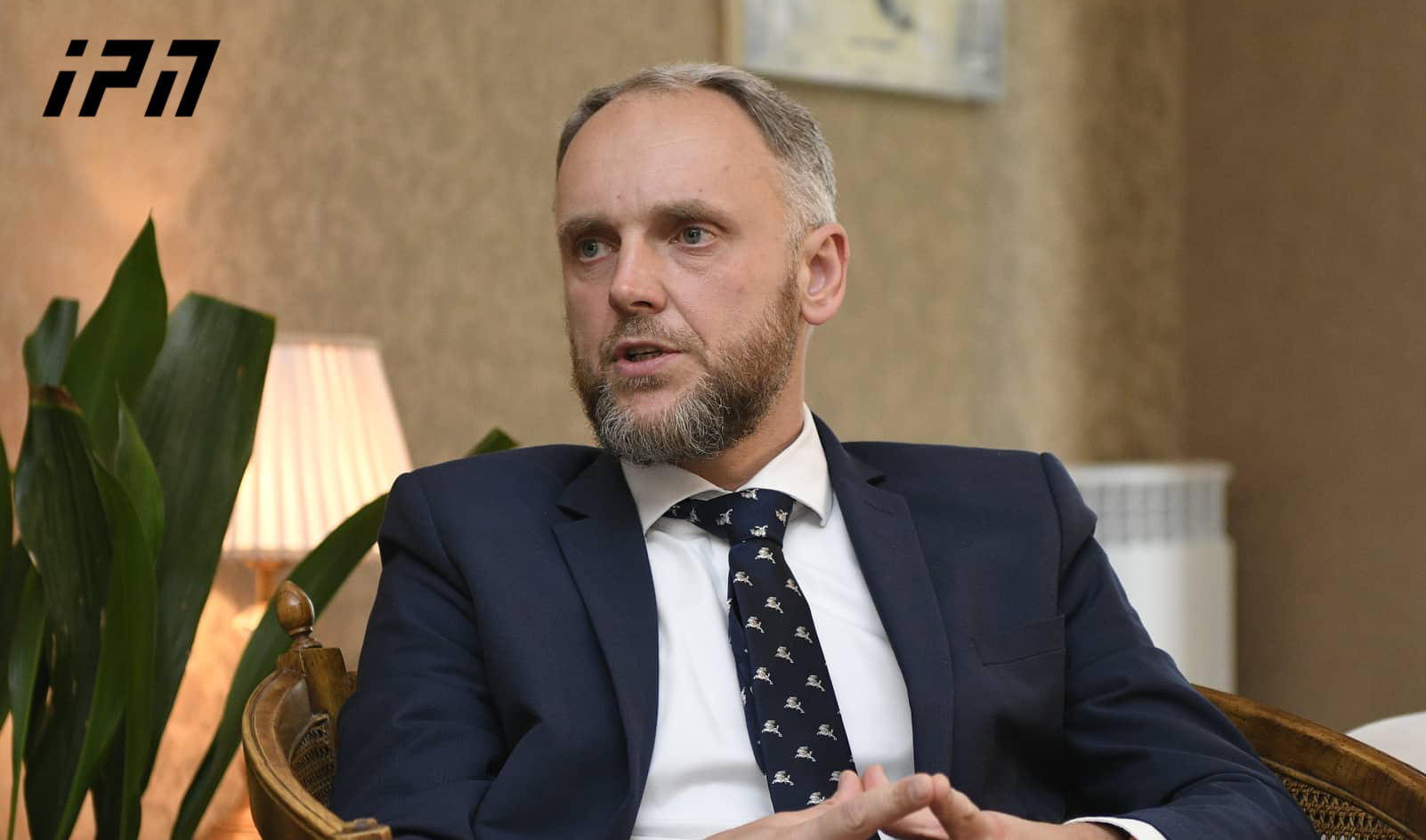
Lithuania has ceased Russian gas imports and became the first European country to do so. According to Lithuanian officials, they will not let Russia use natural resources for blackmail. What do you think, how much Lithuania was ready for such decision and how can you evaluate energy security situation of your country nowadays?
First signal when Russia used energy, oil, gas as a tool for changing policies was almost 20 years ago when the so-called Gasprom Media took over NTV, that time the most popular TV channel in Russia. 2008 developments against Georgia, 2014 war in Ukraine, they proved to us that we have to build up our energy security resilience. Ten years ago, in 2010, Lithuania was paying the highest price for gas, among all the new member states.
So that time it was the political decision among the political parties of Lithuania to build the Liquefied natural gas (LNG) terminal. Its name is Independence. This is how we see our independence. We're independent in a way to choose resources from where we are importing the natural resources since 2014.
That's why we were very much ready to cut off the gas supply from Russia and use alternative sources. Out of all the Baltic states, Lithuania is the only one that has its oil refinery.
Once again we're ready to pay a bit higher economic price in order to stop financing the Russia's aggression. And this is very much important because we must not allow Russia to earn money from to their exports. At the same time, we do not let them provide resources to strengthen their military border security presence not just in Kaliningrad or Belarus, but also here in occupied territory in Tskhinvali region, that is just 40 km away from Tbilisi. So our approach is that we should not finance Russian and Belarussian regimes because these regimes are playing against world and the people who enjoy the freedom and independence.
On June 18, the Lithuanian Railways stopped carrying Russian cargo to the Russian exclave of Kaliningrad on its territory, which is subject to EU sanctions. The decision of Lithuania was criticized by the Russian leadership. According to Prime Minister of Lithuania, Ingrida Šimonytė and President of Lithuanian Gitanas Nauseda, Lithuania is not going to remove sanctions, while the European Commission plans to issue a clarification that will allow Russia to resume sending supplies to Kaliningrad and official Berlin supports this idea. Can you tell us how Brussels and Vilnius are going to resolve this issue, and why there is not unity about the Kaliningrad case inside the EU?
I would say that the EU decision-making process is based on consensus and it happens is case of sanctions too. Sanctions were imposed by consensus and this so-called interim period for certain goods was imposed till the 18th of June, when Lithuanian authorities immediately started to apply them including for the transit from the mainland of Russia to the Kaliningrad region. And this still goes on. But here let me clarify that not all kids of transit are banned.
Now we're talking only about banning of transit of goods that are sanctioned by the EU. Right now the passenger transit goes on.
So-called Kaliningrad transit system is a subject of the trade agreement signed in 2004 between the European Commission, European Union, Lithuania and Russian Federation. We are a part of the truth. The truth is that the sanctions are imposed and unless there is another decision of removing the sanctions made in Vilnius and Brussels supported by all of the European Union.
On June 23 the European Council granted Ukraine and Moldova the EU candidate status and offered a roadmap for Georgia to qualify for the same status. According to the EUCO Georgia will be granted the status once the required criteria are fulfilled. How would you estimate the decision of the EUCO, was there a possibility to grant Georgia candidate status but with conditions? Does the decision of the EU mean that Association Trio does not exist anymore? Also how this process can be seen from an aggressor state?
I would say that for the first time Georgia was granted the European perspective and it reminds me a bit of Lithuanian case when in 1997 we were denied to be granted like you the candidate status and we tried to chase the train and we were granted this candidate status two years later in 1999. But at the same time, we were ready just to join the European Union together with the countries that were granted it in 97 and 99, this is the process itself. And of course, we were following the developments of the European Union capital Brussels. Many political actions occurred during the time. There was very heavy investment by the European Union on behalf of the President of the European Council, Charles Michel, with the so-called April 19 agreement. He visited Georgia three times last year in the six months.
So it was definitely a big investment and now just assessing all the decisions, first I would say that we have to understand that this is made by the consensus. The second is definitely European perspective, this is already the official start, official start of the next steps that are needed to be done.
We as Lithuania, we're very much ready to support Georgia in speeding up the necessary reforms. If our advice and our expertise, including the pool of the experts would be needed, we're very much ready to propose it and we have notified the official Georgian authorities on it because this is our genuine interest that Georgia would be around the same table in Brussels where the European issues are being discussed.
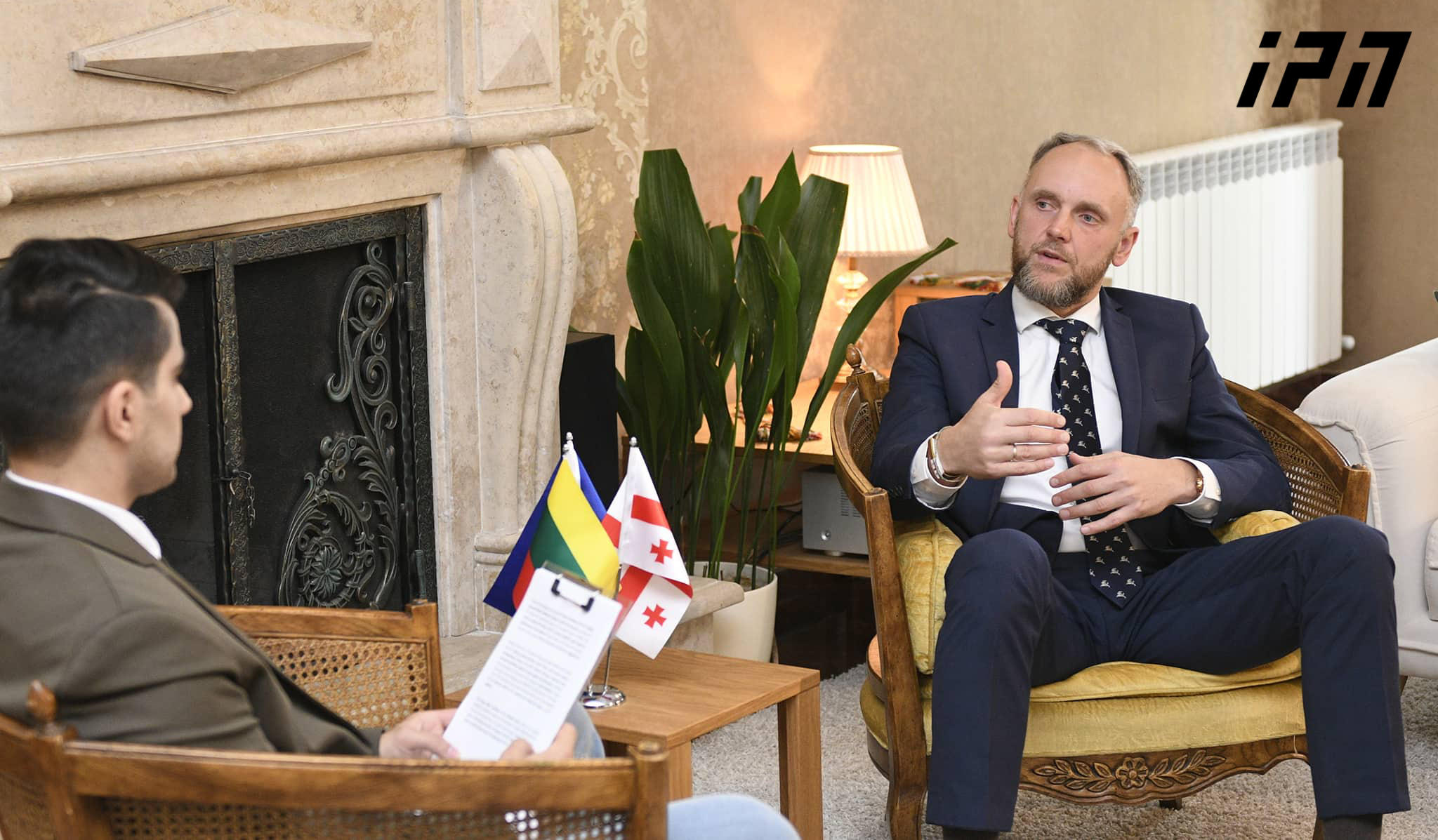
Let me just encourage once again to go through all the recommendations and do everything possible in order to meet them, because this is the high expectations by all the capitals, including Vilnius that by the end of this year these recommendations are being addressed and Georgia is granted the EU candidate status. So, the trio would be once again the reiteration of your political will and I believe that this is not only the interest of Vilnius or Tbilisi, but also a number of European capitals across the European Union.
I think the most important thing is that all the decisions regarding Georgia or Lithuania are being done in Tbilisi and Vilnius, but not in capital of the country that you have mentioned. So we have to concentrate on domestic issues and do everything that is needed and not blame the state up north that's something is not very much successful, this is the determination of the country people. So I would once again just not to look so much to the window of Russian Federation because that view is very much different from us Tbilisi and Vilnius.
European Union set out 12 conditions for granting Georgia candidate status. Among them are: reducing political polarization, judicial reform, anti-corruption measures, de-oligarchization, election of the Public Defender, ensuring an appropriate media environment and effective response to violence against vulnerable groups. According to the recent statement of the chairman of the ruling party Irakli Kobakhidze, Georgian Dream plans to create working groups to fulfill the 12 conditions listed by the European Union. A special agenda of what should be done was created. Do you think that Georgian Dream will effectively fulfill the EU conditions and Georgia will manage to get EU candidacy?
As in all democracies, we like or not like, the biggest responsibility for the country's development and future relies on the government and the ruling party. But at the same time, let me stress that this responsibility, especially in addressing these recommendations, lies on all the country, the people, all the political parties and the nongovernmental organizations that are very active in Georgia. Twelve points plan were brought in an expedient manner. That's a good message for all the friends and all the people of Georgia. There are concrete dates established for the next days what has to be done. Definitely that's a good sign. But one thing from our history is that time goes very quickly, especially in this race to catch up with the train of Ukraine and Moldova, that train goes very fast. So that means that we have to double the efforts in order to catch that path. The second, our experience from 1997 to 2004 is that we had to do everything what Brussels has told to us, because Brussels is representing all the EU member states’ views.
Now it's time for necessary, courageous moves, they can be politically painful moves, but these are the price and the cost that needs to be paid. So we're looking forward for a very intensified work and then blended efforts by all parties, because the next review of Georgia will be already in less than half a year time. The Associated Trio, these three countries would be once again at the very top of the European agenda.
The Foreign Affairs Committee of the Lithuanian Seimas called on the Georgian leadership to facilitate the transfer of the imprisoned ex-President Mikheil Saakashvili, who has “serious health issues, to a European state for urgent treatment.” What is your opinion, what should government of Georgia do with Mr. Saakashvili and is Lithuania ready to accept him if government of Georgia agrees to do so?
Vilnius, the government and the parliament of Lithuania is very much interested in the success of Georgia and Vilnius is very much following the case of the third president, especially regarding the humanitarian part of this issue and I wish to emphasize that we're focusing on just the humanitarian part. So here together with our partners we are in a place just to provide our good offices if it's needed in order to address this issue and we are very much ready to support Poland and Polish invitation and proposal to accept the third president of Georgia. If there is such a decision made, the most important thing will be fully acknowledging the sovereignty, any such decisions would be made in Tbilisi.
Thank you, that was my final question. I will use this opportunity to say that the Lithuania is one of the greatest supporters of Georgia, your country is always supporting us when we need it. If you would like, you could use this opportunity to address Georgian society during an important moment now when we have the possibility to become a member of the European Union.
More than 30 years have passed since the restoration of independence of our countries, this is a short time to build a state. It continues daily. So I would advise you to strengthen freedom, independence, all human rights. Because this is the most important, how Georgia and Lithuania will be in the future, what kind of countries we're going to build up. I would say love and mutual spirit of a friendship definitely will prevail and I'm confident that Lithuania and Georgia will not be in a position not to support each other. This is especially needed during times like this. So I'm very much confident in this. Our joint friendship and strategic partnership is the one that we are very much committed to, but also it comes with the huge responsibility from both sides and the people of these countries. The people are the ones who are determining the future of our countries.
Beka Beriashvili
InterPressNews




